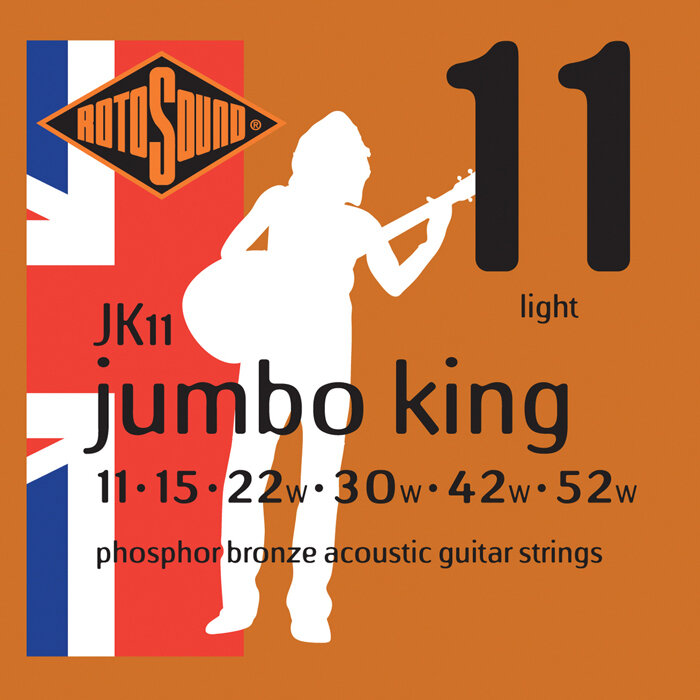
Welcome to Buckley's Music Group, your go-to spot for all things musical in Grafton! We truly understand the needs of musicians and are here to assist you every step of the way. Whether you need instruments or repairs, just give us a call or us a message, and we'll find the perfect solution for you!
Can't Find What You're Looking For? Search Here
ONLINE STORE
LOOKING FOR AFTERPAY? CHECKOUT WITH PAYPALS 'PAY IN 4'
SAFER FOR YOU AND JUST AS EASY!
Rotosound JK11 Jumbo King Phosphor Bronze 11 - 52 String
JUMBO KING
Acoustic Phosphor Bronze
Still the world`s favourite acoustic string that has been around for decades and will continue to do so.
With a 92/8 bronze alloy made especially for us to our exacting specifications in the UK.
This set continues to remain the favourite string for such eminent performers as John Renbourn and Sir Bob Geldof.
Please note: w denotes wound string
Johns thoughts on his strings of choice
In my search for the clearest set of bronze strings, I tried some old Rotosounds in black and red packets that I had somehow managed to hang on to for years. They sounded really good, bright and well balanced but with a rich tone.
The company were amused to hear that anybody should still have strings going so far back but assured me that, several packet designs later, their new strings were still the same quality. Rotosound bass strings have a high profile world-wide which may have overshadowed their guitar strings.
James How, who founded the company in the fifties, engineered a new type of string-winding machine that was a step ahead of the industry and all the strings are produced to the same degree of precision.
In addition to the phospher-bronze round wounds, Rotosound also make guitar strings in the piano string design.
That is with the wrap wire stopping short of the ball end so that a section of the core wire is exposed and only the core wire comes into contact with the saddle. These strings are called ‘Country Gold’.
It is actually an old idea and I have a feeling that the very first steel strings used on the guitar in the 1800′s were like that.
The gauges for both types of string are 060 to 018 covered, and 026 to 008 plain.

